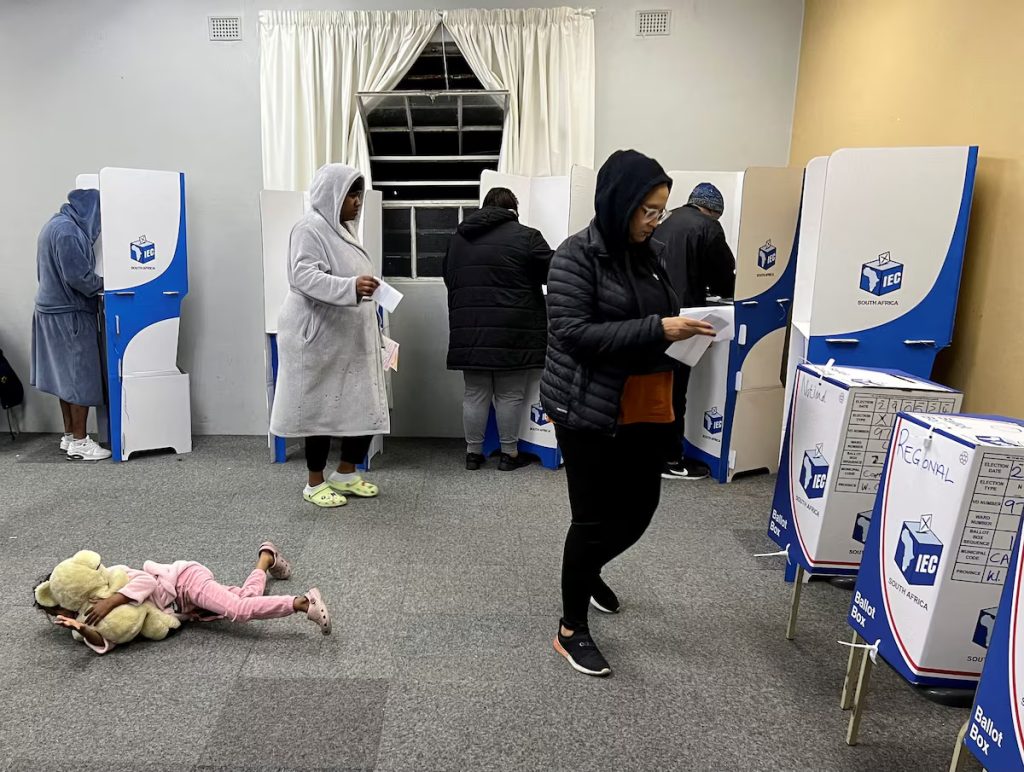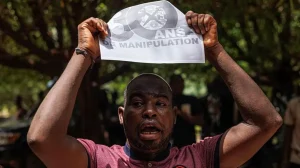
The African National Congress (ANC) appears poised to lose the parliamentary majority it has held for 30 years, according to partial results from South Africa’s national election, marking the most significant political shift since the end of apartheid.
With results tallied from 13.9% of polling stations, the ANC’s vote share in Wednesday’s election stood at 42.6%, compared to the pro-business Democratic Alliance (DA) at 25.8% and the Marxist Economic Freedom Fighters (EFF) at 8.5%, as reported by the electoral commission.
Simon Harvey, head of foreign exchange analysis at Monex Europe, commented on the potential impact: “There will be checks and balances on the ANC power, but the ultimate risk is that the infighting could make governance ineffective.” He noted the speed of forming a coalition would signal the future political landscape. “If it is protracted, you may start to worry about a political gridlock going forward,” he said.
The election results have already impacted South African markets, with the rand slipping over 1% against the U.S. dollar to its weakest level in four weeks. The wider equity index fell more than 2% in its worst day in six weeks, and international bonds dropped as much as 1 cent on the dollar.
The ANC, which has won every national election since Nelson Mandela’s 1994 victory, faces declining support due to issues like high unemployment, crime, power blackouts, and corruption. Early projections by the Council for Scientific and Industrial Research suggest the ANC will secure roughly 42% of the vote.
The ANC’s support in the 2019 election was 57.5%, with the DA at 20.8% and the EFF at 10.8%. The current election turnout is expected to surpass the previous 66%.
Under South Africa’s constitution, the newly elected National Assembly will elect the next president. Despite the ANC’s anticipated status as the largest party, a poor showing could expose its leader Cyril Ramaphosa to a leadership challenge within the party.
In Gauteng province, home to Johannesburg, early results showed the ANC with 38% of the vote, the DA with 27.8%, and the EFF with 10.9%. In KwaZulu-Natal, former president Jacob Zuma’s new party, uMkhonto we Sizwe (MK), was performing strongly, securing 42.7% of the vote compared to the ANC’s 21.4%.
Zuma, who resigned in 2018 amid scandals, has backed MK, which appears to be drawing votes away from both the ANC and the EFF, especially in KwaZulu-Natal.
The electoral commission has up to seven days to declare full results but typically does so faster. The new parliament must convene within 14 days of the final results and elect the nation’s president as its first act. If the ANC loses its majority, the coming weeks could see intense negotiations to form a new government.








